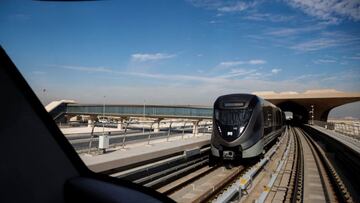Sustainable transport solutions for the 2022 World Cup in Qatar
"Sustainable transport is one of the cornerstones of our sustainability strategy for the 2022 FIFA World Cup," said Bodour Al Meer, the Supreme Committee for Delivery and Legacy's director of sustainability.

As part of its sustainability strategy for the 2022 FIFA World Cup, the Supreme Committee for Delivery and Legacy - the body responsible for organising the tournament in Qatar - is committed to providing sustainable, affordable and environmentally-friendly transport solutions for the event.
A major element of the country’s plan is the gradual transformation of its transport system to electric vehicles - a process which is key among the goals set out in the Qatar National Vision 2030.
According to Bodour Al Meer, the Supreme Committee’s director of sustainability, “Sustainable transport is one of the cornerstones of our sustainability strategy for the 2022 FIFA World Cup. A strategy of this nature is the first in the history of the World Cup and is being mapped out together with FIFA.”
Speaking to the Qatari news agency Qna, Al Meer said the World Cup has spurred on the implementation of national projects including the strategy for environmentally-friendly, electric vehicles; the purchase of World Cup buses; the establishment of an electric-vehicle factory; and the implementation of 11 infrastructure contracts that support the private sector.
Related stories
Al Meer noted that this not only underlines Qatar’s determination to achieve a positive environmental World Cup legacy by hosting an eco-friendly, carbon-neutral tournament, but will strengthen the country’s position as a pioneer in clean energy - it will be among the first in the world to have an integrated electric transport system.
She pointed to the Doha Metro as one of the most sustainable means of transport at the World Cup, declaring that it will provide easy and safe travel for visitors to Qatar.